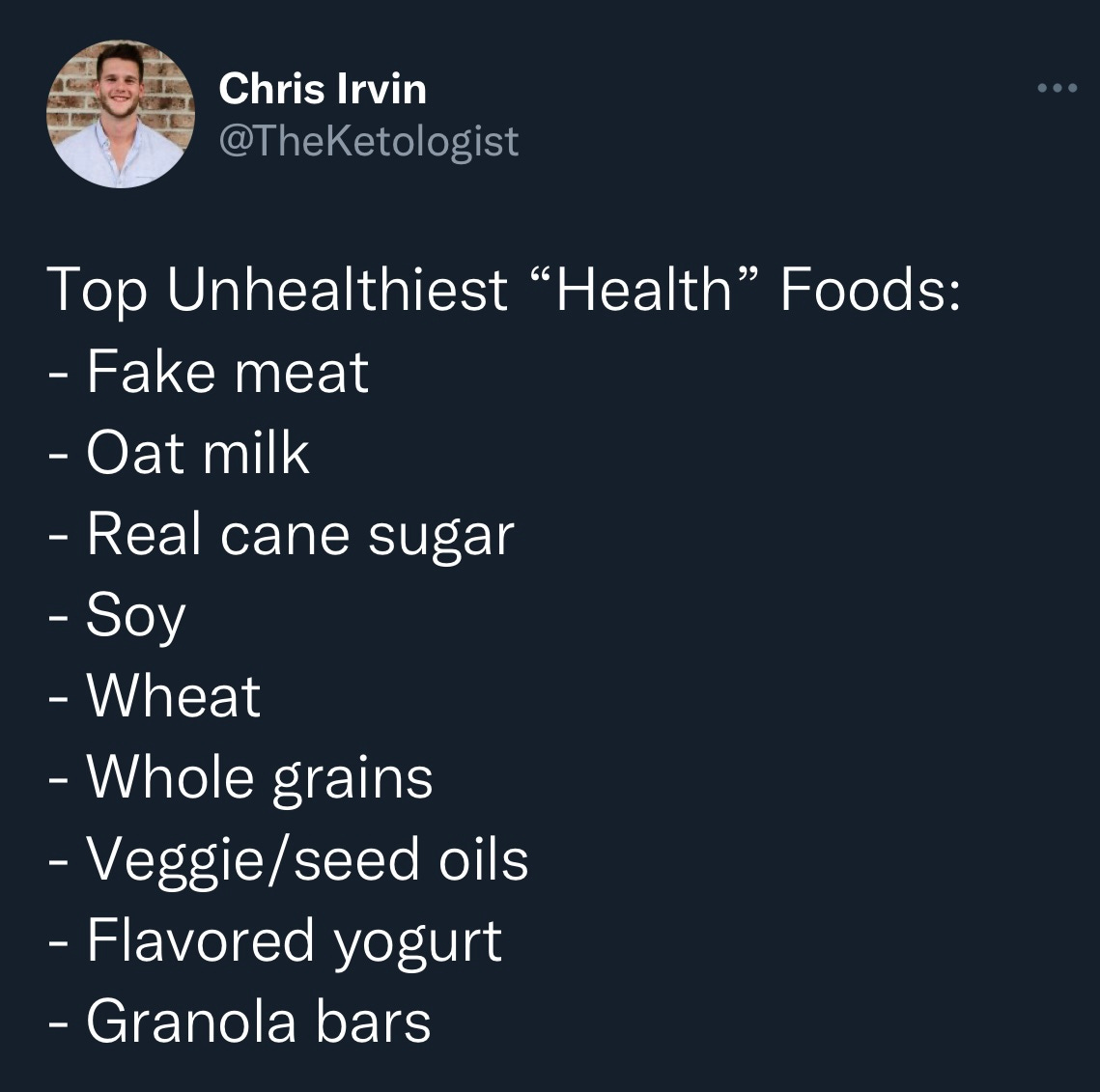This weekend I made a post on Instagram talking about foods that are often marketed as healthy but are not actually healthy. One of my favorite things about posting content like this is getting to see the reactions from different individuals in the comments. Not because I like stirring up shit but because it’s a great opportunity for me to hear different perspectives and get feedback on how to better relate to people with the educational content I post.
My post this weekend and the followers of mine who commented on it helped me realize that there may be a difference between unhealthy and not healthy and this distinction may be important when it comes to improving our health while also having a healthy relationship with food.
I had many people comment saying that some of the foods on the list aren’t that bad for us in moderation. While I do think moderation is a difficult line for most people to walk, especially when it comes to addictive foods, I generally agree with this statement. Which prompted me to respond with the idea that the “purpose of my post was not that these foods were necessarily that bad (though some like seed oils are pretty trash) but rather that these foods are simply not healthy as in not health-promoting, like the way many of them are marketed. More of a knock on big food than anything.
So the distinction between unhealthy and not healthy is that unhealthy food is actually damaging to our health in the dose we are consuming it while a food that is not healthy is simply not producing a positive improvement in health or we may not be getting enough of it to cause any real damage.
Foods that fall in the not healthy category typically contain little to no nutritional value but do not contain high amounts of truly health-damaging ingredients like added sugar and refined seed oils with the latter actually being unhealthy.
The reason this distinction may be important is because it can help guide someone to make better nutrition decisions during their health journey. If you know that a food is truly unhealthy and that it is actively damaging your health in the amount you are consuming it, you will be more likely to prioritize avoiding that food. Or so we hope. And if you know that some foods are okay it’s just that they simply do not offer much nutritional benefit, then you may be more likely to choose these options in moments of weakness over truly health-damaging foods. And doing so with this mindset may lead to fewer feelings of guilt and a better relationship with food.
Now some of you reading this still may not be able to make the distinction between unhealthy and not healthy because you simply view anything that is not health-promoting as unhealthy. I don’t disagree with you. But this slight distinction and change in thought process may be a mental model that plays an important role in the success of others coming in at different stages of their health journey!
Thanks for thinking with me,
Chris Irvin
P.S. I have become a big at-home health testing fan over the last couple of years out of my desire to learn more about my health but also from a place of seeing family and friends enjoy the comfort of testing important health biomarkers from their own homes. Especially things that many doctors won’t test for them. One at-home test I am big on right now is the Stress Test from Base.
Tune in to my social media for some upcoming content educating on the importance of this test. If you check out Base use the code THEKETOLOGIST to save 20% on your at-home test!








I really thought we'd be safe at Keto Con trying everything and bringing samples home! The :ratio cereal is TERRIBLE! I'm hoping there will be a survey sent out from Keto Con asking our fave and not-so fave speakers and vendors!